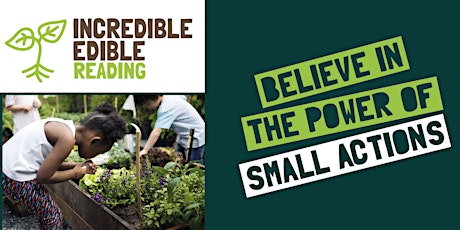Interview of Chris Rhodes (Chair of Transition Town Reading), by Kath Burton for Incredible Edible Reading.
KB: "So, tell us about yourself and Transition Town Reading."
CR: "I’m Chris Rhodes, I used to be a university professor in Physical Chemistry. And about, almost 20 years ago now, I got involved with energy, and I became very interested in the origins of crude oil, because there are different theories about it.
Anyway, in my researches into this particular topic, I came across the concept of "peak oil", which doesn’t mean that we’re going to run out of oil any time soon, but we probably won’t be able to maintain the current level of consumption, because we’ve got through a lot of the easy-to-get stuff, and that made me think, well actually, if there is an issue over the oil supply, then because we get practically all our transportation from oil, at the moment, then that means we are going to have to do more of what we do at the more local level.
Then, sort of thinking around this, I came across Transition Towns, and then I looked a bit further and discovered there is a Transition Town Reading, and I contacted them – that must have been about 12 or so years ago – anyway, I joined the group and I’ve been Chair of Transition Town Reading for about the last 10 years."
KB: "What’s the link between Transition Town Reading and Incredible Edible Reading?"
CR: "Well, I think I’m a sort of nominal member of RFGN [Reading Food Growing Network], actually: I’ve been along to some of the AGMs, and helped out with the seed swap. I often help cart the seeds over to various places, with my wife actually. But, the more direct connection to Reading Incredible Edible is that the Transition Network, which is sort of like Transition Towns’ HQ, actually released some funding, called the Bounce Forward Grant, for things... projects that are really in keeping with Transition core principles, like relocalisation, local food growing, so RFGN and TTR, and I think Food4Families were involved, and we put an application in, and it was funded, and so that is being used to unfold food growing activities – community food growing activities – across Reading."
KB: "If you had a magic wand, what opportunities for realising a town connected by food and food-growing initiatives, would you bring to life?"
CR: "A good question. There is an awful lot of spare ground, if you like, in Reading, and lots of other places, and a lot of it actually costs the local authority money to look after it. What about, if I wave my magic wand and that [land] can be released, and even people encouraged to grow food on it? Or to create oases for pollinators, and all this kind of thing?
But, I’m reminded of Kilburn tube station, in London... I mean, ok, it’s above ground, but some years ago, they started planting vegetables there, and they’re free for anybody to take home and eat, and it’s grown into a real kind of community enterprise.
And, I would like to see that happening, across Reading, all these plots of vegetables, maybe a few flowers, and so on, here and there. I mean, there is some guerrilla gardening going on, down by Reading Bridge, for example, and by the station, but I’d like to see a lot more of that, because it’s a great way of, ok, providing food... marvellous, especially given the current cost of everything, but it brings people together; it helps build community, and I think that’s so important, and I think it’s going to become even more important, as times change, you know, as we try and adapt to a world that is shifting in all sorts of respects.
And the other thing I would do, if people wanted actual allotments, well, I wave my magic wand, and there’s less bureaucracy attendant to getting an allotment, so that somebody can get one, say, within three months, because sometimes people are on waiting lists for, oh, years, in some cases. So, I’d get rid of that, and try and actively encourage food growing activities across the town."

No comments:
Post a Comment